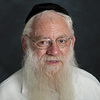This site is dedicated to promoting the work and writing of Dr. Aharon Fried in Jewish Education
Learning to do something requires opportunities to try out what one has learned and to receive clear feedback on where one has gone wrong so that one can correct one's errors. As Chazal tell us, "Ein odom omed al doar Halacha elo im ken nichshal bo t'chila "--A person does not fully acquire mastery of any Halacha unless he has first stumbled over it." To properly learn thinking, our students must be given opportunities to practice thinking.
Unfortunately, we do very little of this. What we tend to do most of the time is feed our students information which they are required to assimilate and at some later date to recite or reproduce from memory on assignments, tests, and examinations. Thus we tend to exercise the faculty of memory (important) and ignore the (equally important) faculty of thinking. 1
There are those who would take issue and contend that we do in fact teach thinking — witness all of the targillim (exercises) which are done in Chumash, such as "mi amar el mi" and "al me ne'emar" etc. These exercises do have potential use as teaching materials for basic comprehension skills. In fact they would work if students would be required to search the texts and work out the answers for themselves. Unfortunately, in. most -classrooms. the teacher goes over all of the questions in class and often even puts all of the answers on the board for the students to copy. The students are then required only to memorize the answers and. to spit them back on homework assignments or on tests. Again, an exercise in memory only.
Now it is true that at least some of .the skills involved in learning Chumash with Rashi and Gemara can be taught only to students at higher elementary or high school levels. Still, if our students are to attain these higher order skills at any level in their school careers, then they should be taught preparatory thinking skills at younger ages. These skills can be taught without great difficulty. We need only abandon our
Unfortunately, we do very little of this. What we tend to do most of the time is feed our students information which they are required to assimilate and at some later date to recite or reproduce from memory on assignments, tests, and examinations. Thus we tend to exercise the faculty of memory (important) and ignore the (equally important) faculty of thinking. 1
There are those who would take issue and contend that we do in fact teach thinking — witness all of the targillim (exercises) which are done in Chumash, such as "mi amar el mi" and "al me ne'emar" etc. These exercises do have potential use as teaching materials for basic comprehension skills. In fact they would work if students would be required to search the texts and work out the answers for themselves. Unfortunately, in. most -classrooms. the teacher goes over all of the questions in class and often even puts all of the answers on the board for the students to copy. The students are then required only to memorize the answers and. to spit them back on homework assignments or on tests. Again, an exercise in memory only.
Now it is true that at least some of .the skills involved in learning Chumash with Rashi and Gemara can be taught only to students at higher elementary or high school levels. Still, if our students are to attain these higher order skills at any level in their school careers, then they should be taught preparatory thinking skills at younger ages. These skills can be taught without great difficulty. We need only abandon our
1. I should perhaps make it clear that when I speak of thinking skills, I am not speaking of "pie-in-the-sky" questions of the nature of, "If you were Moses in Egypt, how would you have approached Pharaoh?" or of questions of "mah I'malah uma I'matah." I am speaking of simply (or not so simply) understanding what Rashi says and why, what it is about the pasuk that forced Rashi to seek an interpretation, what brought him to the particular interpretation he gives, how could the pasuk have been written differently, and how would we then have understood if differently. Similar questions for understanding could be raised for a blatt Gemara.
Teaching Thinking Skills in the Judaic Studies Curriculum / 105
Teaching Thinking Skills in the Judaic Studies Curriculum / 105

